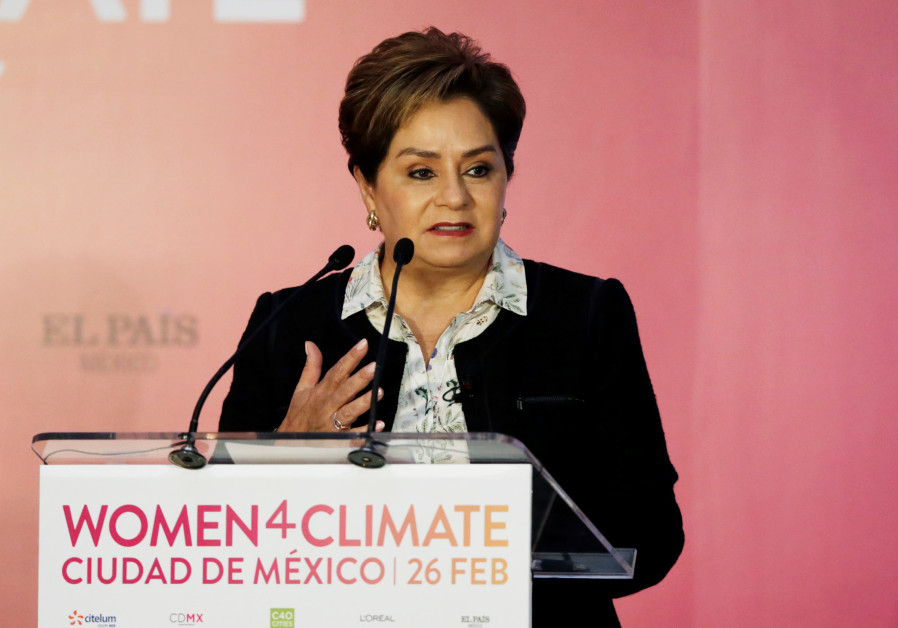U.N. climate rep.: Israel is well placed to provide Africa with assistance

Patricia Espinosa gives a speech during the Women4Climate conference in Mexico City, Mexico February 26, 2018.. (photo credit: REUTERS/HENRY ROMERO)
While no one country has a monopoly on innovation, and the world market is very competitive today, water and “smart agriculture” are two areas where Israel is well placed to help Africa, Patricia Espinosa, the head of the main UN body dealing with climate issues, said on Thursday.
In the country to take part in a Foreign Ministry sponsored conference entitled “Africa, Climate Change, and Israel’s Contribution,” Espinosa – a former Mexican diplomat – said Israel is “particularly competitive in some of the areas that are very relevant to the needs of the African countries.”
Espinosa is the executive secretary of the United Nations Framework Convention on Climate Change (UNFCCC), an international environmental treaty that has as its goal stabilizing greenhouse gas in the atmosphere. The countries who are party to the treaty passed the Kyoto Protocol in 1997, and the Paris Agreement in 2015, which US President Donald Trump announced in 2017 that Washington was withdrawing from.
Asked in an interview with The Jerusalem Post why she came to a conference that seemed rather limited and regional in nature, Espinos said there is “a sense of urgency in the need to implement climate actions, and one of the most vulnerable countries is Africa.”
One diplomatic official explained that the UNFCCC has a budget into the billions of dollars, and that it spends that money on a project by project basis. The purpose of the conference, the official said, was to twin Israeli companies with African countries so they could then turn to the UN body for help in funding for specific projects.
Espinosa said that African countries have “really faced enormous difficulties in trying to get actions going on the ground, partly because it is sometimes difficult for small governments very stressed with lots of obligations to have the capacity to reach out to the right partners in different parts of the world.”
Espinosa said that for a long time resources in Africa “have been used without taking care of the consequences. They have over-exploited land, forest and water, and this has increased their level of vulnerability.”
Prime Minister Benjamin Netanyahu, in a taped video message to the conference, said that Israel “has had to optimize all its life.”
“ We had no significant material resources, we had very little water, we learned to do more with less,” he said. “Technology has given us the ability to do the unimaginable. We have made huge advances in solar, agriculture and irrigation tech, to name a few. But it is not enough that we have applied these technologies in our own country. We are sharing them with the world, and are eager to share even more.”
Climate change is “one of the pivotal issues of our time,” Netanyahu said, and “Africa is particularly affected.” Saying that Israel’s relations with Africa “continues to grow,” he said that “Israel is in a unique position to work with African countries to alleviate some of these pressing environmental challenges.”
“Palestine” is one of signatories to the charter, and when asked how Espinosa could keep the Palestinians from politicizing her organization, as they have done to other UN bodies, she dodged the question, saying that all the countries in the charter were “concentrating on negotiations we have regarding the Paris Agreement,” which is to govern emission reductions from 2020.
Join Jerusalem Post Premium Plus now for just $5 and upgrade your experience with an ads-free website and exclusive content. Click here>>






Comments are closed.